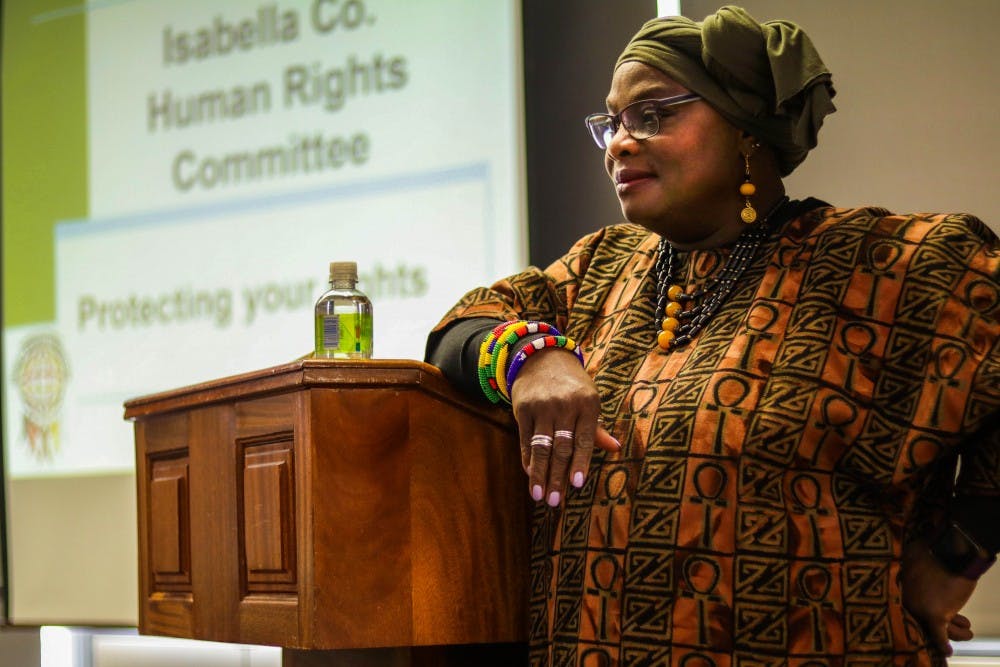Professor discusses human rights in Isabella County at Black History Month event

A Central Michigan University professor took part in the Black History Month celebration by discussing human rights in Isabella County.
Maureen Eke, an English faculty member and the CMU representative for the Human Rights Committee in Isabella County, presented at the "Human Rights in Our Community" event that took place Feb. 8 in the Bovee University Center Maroon, Gold and Chippewa rooms.
Eke said every person has the right to be protected and enjoy equal opportunities.
“These rights should apply universally, no matter who you are, where you live. It shouldn’t matter,” she said.
When these rights are violated, the Human Rights Committee takes action to promote change, Eke said. They work to raise awareness for the often unnoticed acts of discrimination that can be seen in Isabella County and step in to make a change when a violation is addressed.
“The committee stands to protect everybody’s rights, no matter who they are,” Eke said.
One way the committee gets involved is by raising awareness for the "micro-aggressions" that people often use.
The committee conducted a study regarding these "micro-aggressions" in Isabella County, Eke said. The results showed a high level of stereotyping or discrimination of people in the community.
“The attitudes can be racially-based," she said. "They can be based off a person’s sexual orientation."
This may result in people being overcharged for goods and services or even followed and watched in stores, Eke said. She called this "frustrating and hurtful."
The Human Rights Committee works to combat these discriminatory acts and strengthen the community through unity and protection.
Eke’s main goal is to provide protection to people in vulnerable positions, including the homeless, and began the conversation about issues of stereotyping so the people impacted by them can seek assistance without fear of discrimination or unequal treatment.
“We don’t care about your politics, your height, your size or whatever it is that you might be doing," Eke said. "We are here for you and your rights.”
In the future, Eke hopes to educate the public about the opioid presence in the county. She also wants CMU students to be aware of the resources available to ensure equal treatment on and off campus.
“If you ever feel that your rights have been violated, please consult us. Please contact us. We are here to serve you," she said.



